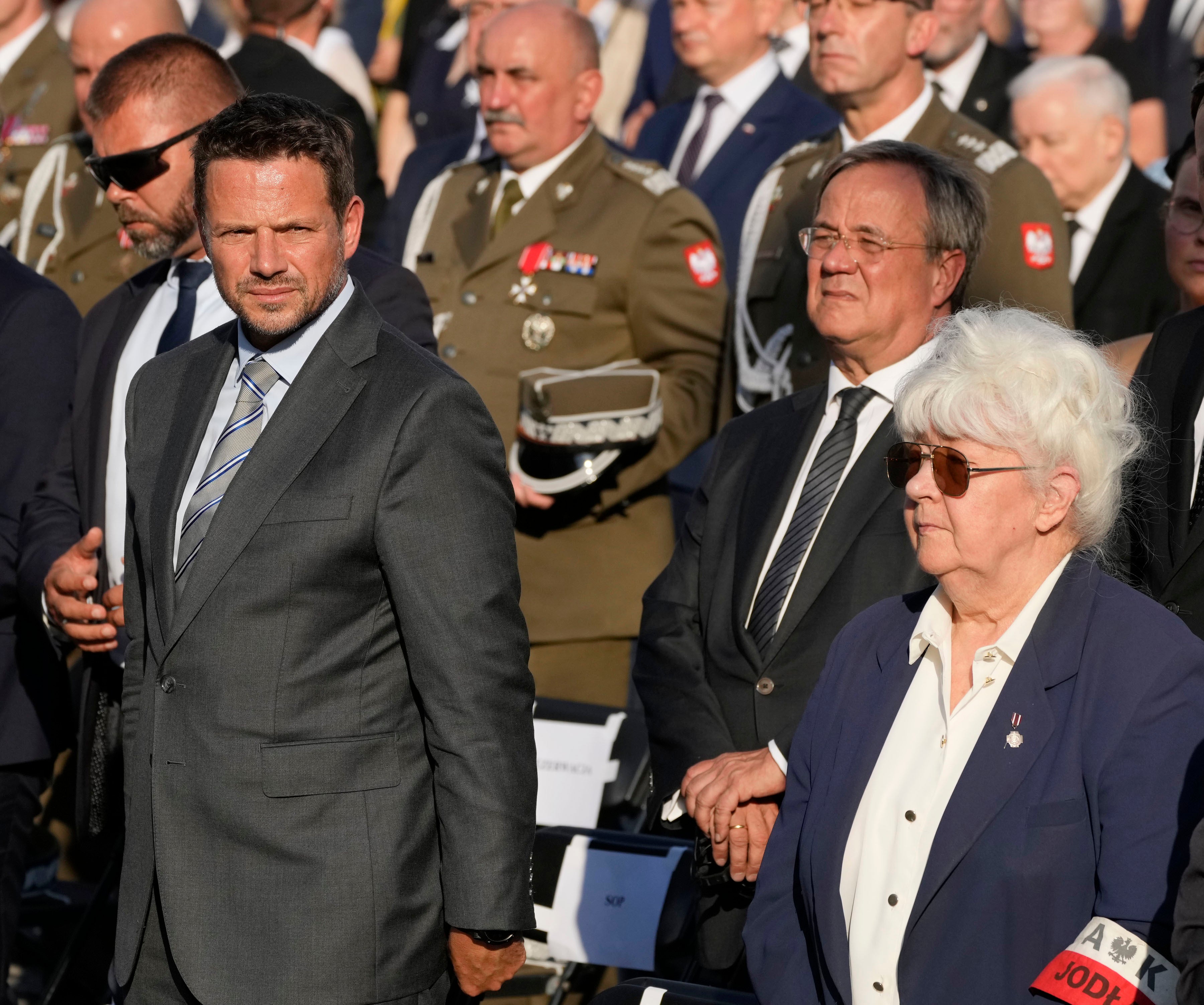Germany's Laschet attends WWII revolt observances in Poland
Germany's center-right candidate to replace Angela Merkel as chancellor in the country's September election says he feels “deep shame and humility” over Nazi Germany's “crimes” against the Poles during World War II

Your support helps us to tell the story
From reproductive rights to climate change to Big Tech, The Independent is on the ground when the story is developing. Whether it's investigating the financials of Elon Musk's pro-Trump PAC or producing our latest documentary, 'The A Word', which shines a light on the American women fighting for reproductive rights, we know how important it is to parse out the facts from the messaging.
At such a critical moment in US history, we need reporters on the ground. Your donation allows us to keep sending journalists to speak to both sides of the story.
The Independent is trusted by Americans across the entire political spectrum. And unlike many other quality news outlets, we choose not to lock Americans out of our reporting and analysis with paywalls. We believe quality journalism should be available to everyone, paid for by those who can afford it.
Your support makes all the difference.Germany’s center-right candidate to replace Angela Merkel as chancellor in the country's September election said he feels “deep shame and humility” over Nazi Germany’s “crimes” against the Poles during World War II.
Armin Laschet spoke to Poland’s daily Rzeczpospolita, excerpts of which were published Saturday, ahead of full publication Monday.
Laschet said he had a personal urge to attend the weekend anniversary observances in Warsaw of the city’s ill-fated 1944 revolt against Nazi German occupation that began in 1939.
“The crimes that the Germans committed against the whole Polish nation fill me with deep shame and humility,” Laschet said.
“This responsibility will determine our policy toward Poland also in the future,” said Laschet, who leads Merkel’s Christian Democrats party, and who is the front runner in the polls ahead of the election.
“Germany must always be aware of its historical responsibility for Poland's freedom and independence,” Laschet said.
Germany was a great advocate of Poland's joining the European Union in 2004 and is attentive to the current rule-of-law conflicts between the right-wing Polish government in Warsaw and the EU's leading bodies.
Laschet visited a monument to the children who fought in the Warsaw Rising and attended a Mass and a roll-call ceremony, where Poland’s President Andrzej Duda gave a speech.
On Sunday, exactly 77 years since the start of Warsaw's two-month devastating struggle against the occupying Nazi German forces, Laschet was to visit the Warsaw Rising Museum. Poland is marking the anniversary with wreath-laying ceremonies, prayers and concerts.
The revolt ended in the surrender of the Polish Home Army resistance fighters. Some 10,000 fighters and up to 200,000 residents were killed in the struggle and the German bombings. The Germans expelled the remaining residents, sending many to death camps like Auschwitz, and destroyed the city, believing it would never rise from the rubble or be Poland’s capital again.